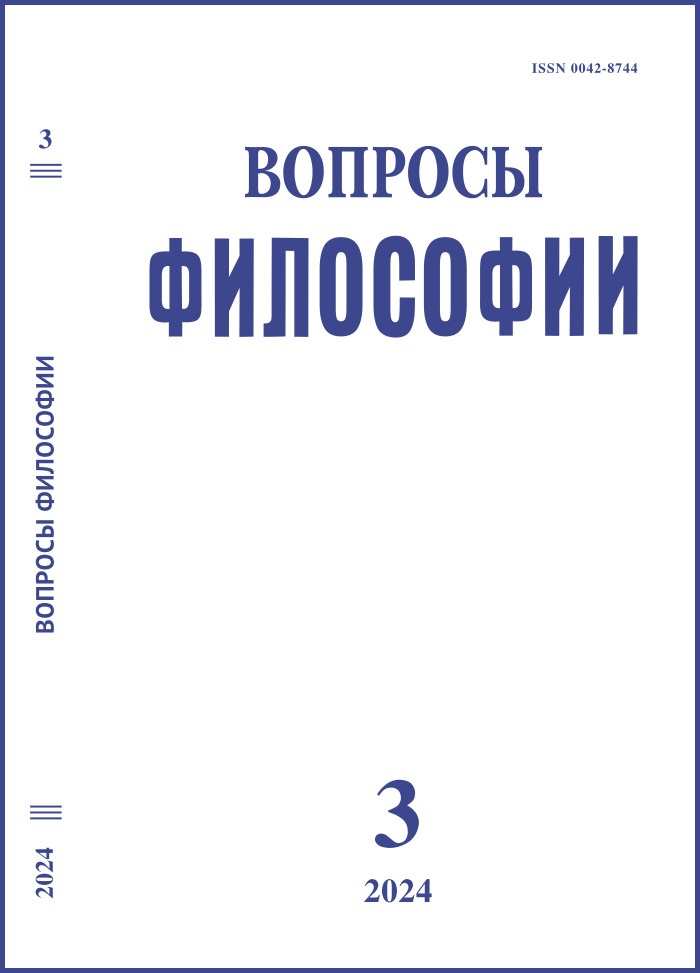Открытия домашнего архива Э.В. Ильенкова
DOI:
https://doi.org/10.21146/0042-8744-2024-3-84-94Ключевые слова:
созерцание, субъективность, логические категории, машина, государство, формы познания, мышление и бытие.Аннотация
В статье проводится исследование архивных работ Ильенкова, публикуемых в его Собрании сочинений. В подготовительных материалах кандидатской диссертации (1950–1953) впервые в отечественной философии обсуждались философские взгляды Маркса в Парижских рукописях 1844 г., в то время изданных только на немецком. Основное внимание уделено понятиям «созерцания» и человеческой субъективности как формы «практически-духовного освоения мира» (термин зрелого Маркса). Выясняется различие между материализмом практическим и созерцательным. Ильенков стремится понять человеческую субъективность как одностороннее и фрагментарное выражение сущности вещи по отношению к общественному человеку, в том виде, в котором она выступает в процессе практического преобразования мира. В архиве нашлись развернутые комментарии к «Философии духа» Гегеля, где Ильенков впервые обращается к теме личности. В сохранившемся наброске лекции середины 1950-х гг. ставится проблема функции логических категорий и языка в работе человеческого сознания. Взгляды Ильенкова расходятся с диаматовской «теорией отражения» и «павловской психологией», но смыкаются с запретной в те годы «исторической психологией» Л.С. Выготского. Архивные тексты 60-х гг. проливают свет на резко критическое отношение Ильенкова к советской модели социализма как уродливому воплощению мечты о «машине умнее человека». Государство философ считал «самой зловредной и бесчеловечной» из всех созданных человеком машин. В заключение, по стенограммам защиты кандидатской диссертации М.К. Мамардашвили, реконструируется их полемика с Ильенковым о природе сознания и формах познания мира.

